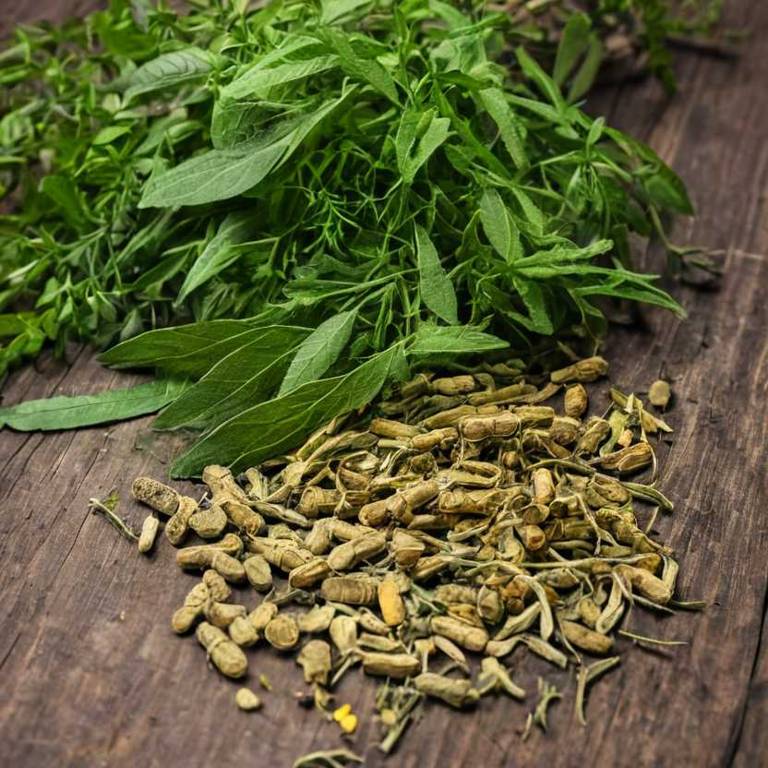Golden Shower Tree (Senna alata)
Golden Shower Tree (Senna alata) is a member of the Fabaceae family, native to Southeast Asia, Africa, and Indo-China. Traditionally, its leaves, seeds, and bark have been used for decoctions, infusions, and powders.
This herb is particularly valued for its bitter, anti-inflammatory, and tonic actions, and has a long history of use in african traditional medicine, ayurvedic medicine, and native american herbal medicine.

Quick Facts / Key Information
| Common Name | Golden Shower Tree |
|---|---|
| Scientific Name | Senna alata |
| Plant Family | Fabaceae |
| Genus | Senna |
| Species | alata |
| Native Range | Southeast Asia, Africa, Indo-China |
| Plant Parts Used | Leaves, Seeds, Bark |
| Primary Medicinal Actions | Bitter, Anti-Inflammatory, Tonic |
| Primary Traditional Systems | African Traditional Medicine, Ayurvedic Medicine, Native American Herbal Medicine |
| Historical Preparation Methods | Decoction, Infusion, Powder |
Botanical Identity
- Scientific Name
- Senna alata
- Common Name
- Golden Shower Tree
- Synonyms / Alternative Names
- Senna, Sicklepod, Cancer Bush
- Plant Family
- Fabaceae
- Genus
- Senna
Botanical Description
- Growth Habit
- Perennial herbaceous plant.
- Height
- It typically grows to a height of 1 to 2 meters.
- Leaves
- Simple leaves with glossy dark green upper surface and lighter green lower surface, bearing prominent stomatal bands along the midrib.
- Flowers
- Inflorescences are racemose clusters of yellow flowers with five ovate petals, each bearing a distinct dark brown glandular spot at the base, and five sepals that are longer than the petals, arranged in a zygomorphic symmetry.
- Stems
- Elongated, erect growth habit, opposite branching pattern, smooth surface, prominently venous ridges, and presence of stipular scars.
Traditional Uses / Historical Use
Traditional Systems
- African Traditional Medicine
- Ayurvedic Medicine
- Native American Herbal Medicine
- European Herbal Medicine
Historical Preparation Methods
- Decoction
- Infusion
- Powder
- Poultice
Medicinal Actions
- Bitter
- Historically regarded as a calming bitter, for flavor-based applications.
- Anti-inflammatory
- Commonly referenced as a gentle anti-inflammatory, for general calming applications.
- Tonic
- Traditionally described as a warming tonic, for long-term use contexts.
- Diuretic
- As described in traditional systems, a soothing diuretic, for moisture-related balance.
Active Compounds
- Flavonoid
- Naturally occurring polyphenols that contribute to pigmentation and structural chemistry.
- Coumarin
- A class of aromatic organic compounds found in many plant species.
- Tannin
- High-molecular-weight phenolic compounds found in many plant species.
- Saponin
- Plant-derived compounds characterized by their soap-like properties.
Modern Research Overview
Modern scientific investigation of this plant has focused on identifying its chemical constituents and examining their properties in controlled research settings. Comprehensive study summaries will be incorporated into this section as additional sources are reviewed.
Safety & Contraindications
- General Precautions
- General precautions have been noted regarding the use of this herb.
- Contraindications
- Contraindications related to this herb have been noted in traditional use and available sources.
- Allergies
- Reports of allergic reactions to this herb are not well documented in available sources.
- Drug Interactions
- Potential interactions with prescription medications have been reported in available sources.
- Toxicity
- Reports indicate that this herb may exhibit toxic properties in some contexts.
- Pregnancy & Breastfeeding
- Information addressing pregnancy and breastfeeding-related safety for this herb is limited.
Preparation & Usage Methods
- Infusion
- Infusions are commonly prepared using hot water to release aromatic and soluble components.
- Decoction
- Plant parts are gently boiled in water to release soluble constituents.
- Poultice
- Fresh or dried plant material is applied externally to the skin.
- Powder
- Plant parts are dried and mechanically reduced to a powdered form.
- Extract
- This method isolates plant compounds using alternative solvents.
Growing, Harvesting & Storage
Growing / Cultivation
- Soil
- Prefers loamy soil with well-drained conditions. Typically grows best in organically rich soils.
- Sunlight
- Thrives in full sun. Tolerates full sun to partial shade.
- Watering
- Prefers well-balanced moisture levels. Tolerates periodic dry conditions.
Medical Disclaimer
The information provided on this page is for educational and informational purposes only. It is not intended to diagnose, treat, cure, or prevent any medical condition. Always consult a qualified healthcare professional before using any herb for medicinal purposes.